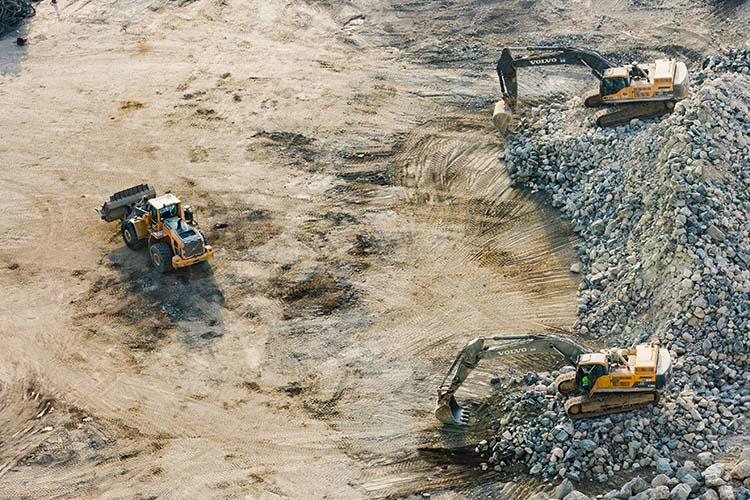Stone is becoming scarce in the Czech Republic, opening quarries is difficult
The Czech Republic is starting to experience a shortage of stone needed for, among other things, concrete production, which could threaten construction development in the future. Permitting new quarries is too complicated and new ones are not being built. Representatives of CEEC Research said this at today's debate on sustainable development of cities and municipalities in Prague, referring to their analysis. According to Eduard Muřický, senior director of the Industry and Construction Department of the Ministry of Industry and Trade (MIT), the state is aware of the problem and an amendment to the law should make mining easier in the case of government-designated strategic buildings.
"There is a big risk that if the situation does not change in terms of opening new mining sites, in the future there will really be nothing to build from and we will be forced to import strategic construction raw materials from abroad, which will make construction more expensive," said Helena Grofová, spokesperson for CEEC Research. She added that the opening of new quarries is hampered mainly by complex legislation.
"We have been encountering this for some time," confirmed Jakub Šimáček, director of concrete producer TBG Metrostav. "Two-thirds of concrete is made up of aggregates," he said. He added that it is difficult to find a supplier of stone every year that would be able to meet the company's needs, which of course is reflected in price negotiations.
Muřický also confirmed the negative trend and said the MIT is aware of the situation and is trying to address it. "The trend is negative, we still have some time to reverse it, but we simply have to sound the alarm. Czech society as a whole must realise that without raw materials we will not be well off," he said. He added that there are 207 stone quarries in the country that are showing production and the situation is worst in the case of stone needed for construction in the railway transport.
This was confirmed by Pavel Paidar, director of the Railways Administration's department for the modernisation of railways, who said that the expansion of mining will also be necessary due to the planned construction of high-speed railway lines. "I am afraid that in the future we will not be able to do without some major legislative intervention," he said. He added that the possible need to import material will mean an increase in the cost of construction.
According to Muřický, the situation is to be partly solved by an amendment to the line law, which was approved by the Chamber of Deputies at the end of last year. According to the amendment, mining can be permitted more quickly in the case of construction materials for government-designated strategic buildings. The amendment also introduces the possibility of expropriation in such cases.
Source: CTK









